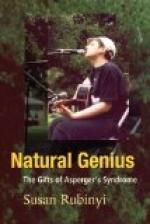But to-day, Art is nothing—genius is nothing—but no! that is blasphemous. It is we that are nothing—if not stupid. Dullness is the universe. The grasshoppers are too faint to sing, the birds sit still on the boughs, waiting for the leaves to fan them. Children are wilted into silence and slumberous nonentity; boys do not bathe to-day—they welter, hour after hour, in the dark water near the shaded rock. Even they and the tadpoles can hardly be seen to wriggle. The cow has found a shade, and, preferring repose to munching, lies contented under the one great elm mercifully left in the middle of her pasture.
A hot day in June is hotter than any other hot day. It finds us cruelly unguarded. After we have been gently baked awhile, the crust thus acquired makes us somewhat tortoise-like and quiescent. If we were condemned to suffer thirty-nine stripes, or even only as many as belong to our flag, would it or would it not be a privilege to take them by degrees, say one on the first day, two on the second, four on the third, etc., in the celebrated progression style, until the whole were accomplished? Or were it better to have the whole at once, and so be done with it? In either case, or in present case, what a blessing to be made pachydermatous! (a learned word lately acquired by ladies, though doubtless long familiar to lords).
But words beginning with the sound of ice, are more agreeable for to-day—such as icicle, isolation, Islip.
Some unhappy critic has said that the “icicle that hangs on Diana’s temple” is not colder than other icicles. We pity him, and would like to try the comparison to-day. We have already tried “thinking on the frosty Caucasus,” and quite agree with Claudio—was it, or Romeo, or who?—that this is of no service in case of fire.
Delicious music for to-day—the tinkling of ice in the pitcher, as Susan, slowly and carefully, brings up-stairs the water we wait for. It were really a loss to have the way shorter, or the servant a harum-scarum thing who would dash in with her precious burden before one knew it was coming.
We might try, to-day, the latest novelty in cookery, a ball of solid ice wrapped in puff-paste, and baked so adroitly that the paste shall be brown while the ice remains unmelted.
Akin to this, is an antique achievement culinary, as old as Mrs. Glasse, at least—the roasting of a pound of butter, an operation not unlike the very work we are engaged in at this moment—indeed so like it, that the remembrance has occurred several times. Your pound of butter is to be thoroughly crusted in bread-crumbs to begin with, and then put upon the spit and turned before a very hot fire; the unhappy cook standing by to dredge on crumbs continually, to prevent the slippery article from running away. When the crumbs (and cook) are quite roasted, the thing is done.




